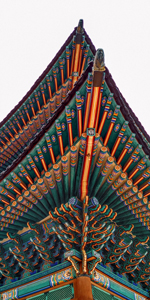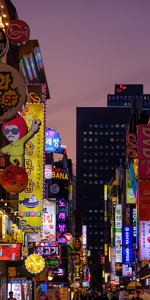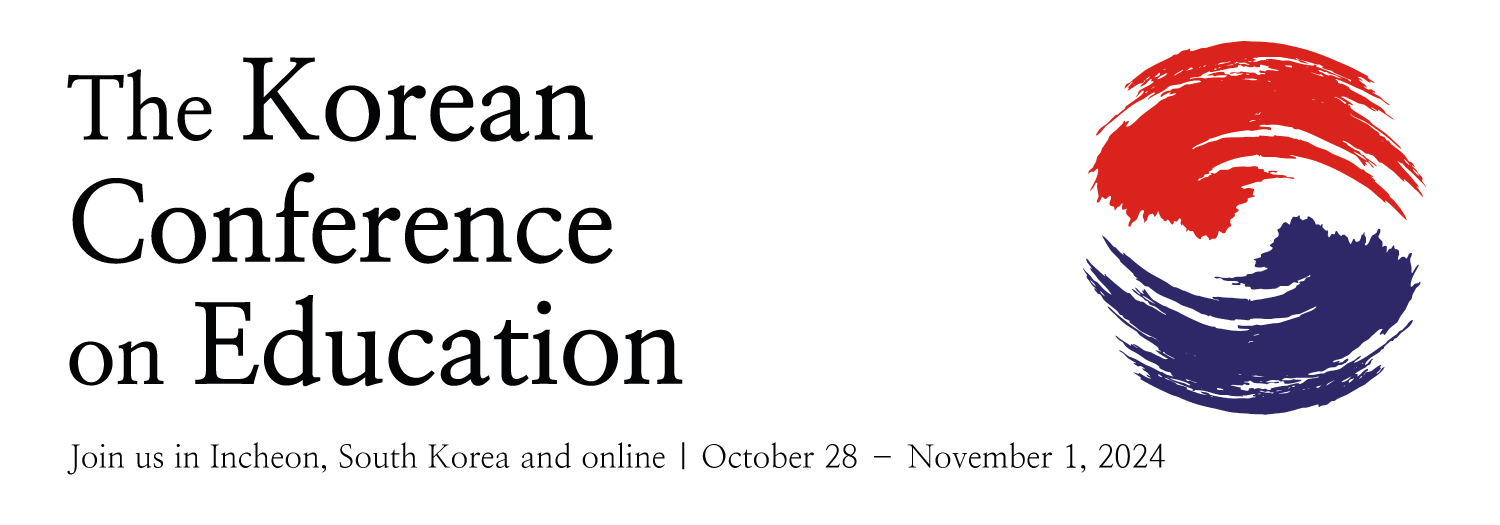The Korean Conference on Education

Join us in Korea (and online) for KCAH2024
October 28 – November 1, 2024 | Songdo ConvensiA, Incheon, Korea, & Online

IAFOR is very excited to announce a new conference event in 2024. The Korean Conference on Education (KCE) will be held in conjunction with the Korean Conference on Arts and Humanities. This conference will be hosted by Songdo International City in Incheon, on the outskirts of Seoul, in partnership with the University of Utah's Asia Campus, the Incheon Global Campus, and the IAFOR Research Centre at the Osaka School of International Public Policy (OSIPP) at Osaka University, Japan.
Songdo is a remarkable new city celebrating its 21st anniversary in 2024, and the ambitious project will provide a wonderful venue to highlight the importance of both education and educational institutions, as well as the arts and humanities, at the center of a strong civil society, and alongside Songdo’s vaunted commitment to be an international city resonates deeply with IAFOR's commitment to the International, Intercultural, and Interdisciplinary.

South Korea is a country with a long and rich history, but also a difficult one; as a country that has been caught in the middle of regional power struggles for much of its existence, the cause for a large and influential Korean diaspora. A cultural center of great importance for millenia, the Korean Peninsula has been subject successively to colonization by the Japanese and then shortly after, an unwitting venue to a bitter civil war that was also a proxy for cold war rivalries. The Korean war split the country in two, with the South becoming a rightwing dictatorship, and North Korea becoming a hereditary communist dictatorship. In the 1970s, the South became a democracy and underwent a remarkable societal transition from one of the poorest nations on earth to one of the most successful. Via this incredible energy, driven by its history and perhaps its precarity, South Korea is now a multicultural and religiously pluralistic society. A resurgent Korea is now a global cultural powerhouse, known throughout the world for its dramas, film and music production, notably K-pop.
KCE2024 encourages academics and scholars to meet and exchange ideas and views in a forum stimulating respectful dialogue. Like our long-running events elsewhere in the world, this event afford an exceptional opportunity for renewing old acquaintances, making new contacts, networking, and facilitating partnerships across national and disciplinary borders.
We look forward to welcoming scholars from across Asia and around the world for what is sure to be a great conference.
– The KCE2024 Programme Committee
Ms Keiko Bang, Bang Singapore Pte Ltd., Singapore
Dr Joseph Haldane, The International Academic Forum (IAFOR), Japan
Dr Gregory C. Hill, University of Utah, Asia Campus, South Korea
Dr Melina Neophytou, The International Academic Forum (IAFOR), Japan
Dr Hugh Schuckman, University of Utah, Asia Campus, South Korea
Professor Ki-Sang Song, Korea National University of Education, South Korea
IAFOR Journal of Education (Scopus Indexed Journal)
 This conference is associated with the Scopus and DOAJ listed IAFOR Journal of Education. Authors need to submit their manuscripts directly to the IAFOR Journal of Education for peer-review process. Please note that papers already submitted to, or published in IAFOR Conference Proceedings are not accepted for publication in any of IAFOR’s journals. IAFOR's Conference Proceedings are not Scopus listed.
This conference is associated with the Scopus and DOAJ listed IAFOR Journal of Education. Authors need to submit their manuscripts directly to the IAFOR Journal of Education for peer-review process. Please note that papers already submitted to, or published in IAFOR Conference Proceedings are not accepted for publication in any of IAFOR’s journals. IAFOR's Conference Proceedings are not Scopus listed.
- Location & Venue: Incheon Global Campus, Korea, & Online
- Dates: Monday, October 28, 2024 to Friday, November 01, 2024
- Early Bird Abstract Submission Deadline: May 31, 2024*
- Final Abstract Submission Deadline: August 01, 2024
- Registration Deadline for Presenters: September 06, 2024
*Submit early to take advantage of the discounted registration rates. Learn more about our registration options.
About IAFOR’s Education Conferences
IAFOR promotes and facilitates new multifaceted approaches to one of the core issues of our time, namely globalisation and its many forms of growth and expansion. Awareness of how it cuts across the world of education, and its subsequent impact on societies, institutions and individuals, is a driving force in educational policies and practices across the globe. IAFOR’s conferences on education have these issues at their core. The conferences present those taking part with three unique dimensions of experience, encouraging interdisciplinary discussion, facilitating heightened intercultural awareness and they promoting international exchange. In short, IAFOR’s conferences on education are about change, transformation and social justice. As IAFOR’s previous conferences on education have shown, education has the power to transform and change whilst it is also continuously transformed and changed.
Globalised education systems are becoming increasingly socially, ethnically and culturally diverse. However, education is often defined through discourses embedded in Western paradigms as globalised education systems become increasingly determined by dominant knowledge economies. Policies, practices and ideologies of education help define and determine ways in which social justice is perceived and acted out. What counts as "education" and as "knowledge" can appear uncontestable but is in fact both contestable and partial. Discourses of learning and teaching regulate and normalise gendered and classed, racialised and ethnicised understandings of what learning is and who counts as a learner.
In many educational settings and contexts throughout the world, there remains an assumption that teachers are the possessors of knowledge which is to be imparted to students, and that this happens in neutral, impartial and objective ways. However, learning is about making meaning, and learners can experience the same teaching in very different ways. Students (as well as teachers) are part of complex social, cultural, political, ideological and personal circumstances, and current experiences of learning will depend in part on previous ones, as well as on age, gender, social class, culture, ethnicity, varying abilities and more.
IAFOR has several annual conferences on education across the world, exploring common themes in different ways to develop a shared research agenda which develops interdisciplinary discussion, heightens intercultural awareness and promotes international exchange.
About IAFOR
Founded in 2009, The International Academic Forum (IAFOR) is a politically independent non-partisan and non-profit interdisciplinary think tank, conference organiser and publisher. Based in Japan, its main administrative office is in Nagoya, and its research center is in The Osaka School of International Public Policy (OSIPP), a graduate school of Osaka University. IAFOR runs research programs and events in Asia, Europe and North America in partnership with universities and think tanks, and has also worked on a number of multi-sector cooperative programs and events, including collaborations with the United Nations and the Government of Japan.




